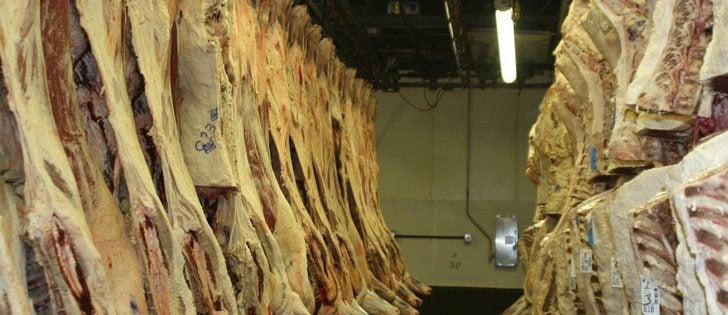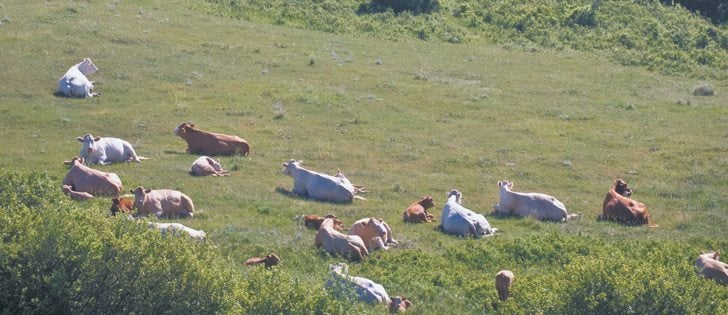Along with the usual promises for a stout defence of supply management in any trade talks, Canada’s chief agricultural negotiator issued a warning last week to the dairy industry.
Gilles Gauthier told the annual policy meeting of Dairy Farmers of Canada Feb. 2 that despite stalemate in World Trade Organization talks, there is a broad consensus among members that a 2005 agreement to end export subsidies should be implemented.
It would affect the dairy industry’s ability to export skim milk powder that is a “structural surplus” produced in the manufacture of dairy products.
Read Also

Charges laid after cattle theft
Saskatchewan RCMP lay two charges against a man after six cattle went missing.
Because dairy surplus products are exported at lower-than-domestic prices, it is considered the beneficiary of an export subsidy under WTO rules.
In Hong Kong in 2005, one of the few WTO agricultural agreements was to prohibit all export subsidies by 2013. The agreement has not been ratified because it takes effect only as part of a broader deal and general negotiations have been deadlocked since then. The proposed deadline will be missed.
However, Gauthier told the DFC conference that countries increasingly are stopping the use of export subsidies on their own and there could be agreement to implement the agreement outside an overall deal.
“It becomes more and more rare to see countries use export subsidies and as you know, the government of Canada has always been supportive of elimination of export subsidies,” said the trade negotiator.
It would be in the interests of the dairy sector to begin preparing for the inevitable.
“It is a fair assumption that such a prohibition on export subsidies will eventually come into effect,” he said. “A lack of proactive planning could add more pressure on how to deal with the structural surplus and could force change that would put the sector at a long-term disadvantage. Now is the time to start thinking about it.”
DFC president Wally Smith, a British Columbia producer, said the industry already is. The evidence is that countries are acting unilaterally to end the practice.
“Obviously we as a dairy industry already have been looking at ways to deal with that particular piece,” he said in an interview.
The industry likely has years to figure out what to do with surplus product that has little domestic market.
Meanwhile, Gauthier said that while trade negotiations at WTO, with the European Union and possibly Trans-Pacific Partnership members will continue to be a forum for critics of supply management’s protectionist rules, his instructions from government are to continue to defend the system while looking for increased markets for Canadian exporters.
Conservative MP Pierre Lemieux, parliamentary secretary to agriculture minister Gerry Ritz, told DFC delegates that government support will continue.
“You need to know we are here for you in the long term,” he told the appreciative audience.
All political parties in the House of Commons have proclaimed their support for supply management and last week, Liberal leader Bob Rae made the commitment in person to a DFC delegation that visited his office during a Parliament Hill lobby day Jan. 31.
Although opposition MPs and government critics predict that with the planned July 31 demise of the Canadian wheat board monopoly, the Conservative free market ideology will next train its sights on supply management, Conservatives dismiss the notion.
In his Feb. 2 speech to delegates, DFC president Smith said he considers political support for the system “unwavering.”
















